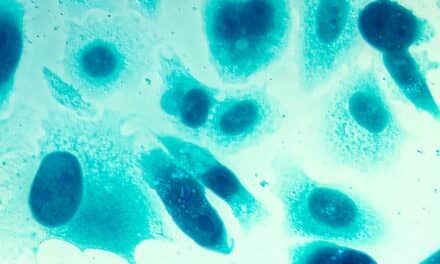Myriad Genetics Inc, Salt Lake City, introduces a new prognostic test, Myriad myPlan Lung Cancer, for patients diagnosed with early-stage lung adenocarcinoma.

“Post-surgical treatment decisions for early-stage lung cancer patients are largely guided by tumor staging,” says Mark C. Capone, president, Myriad Genetics Laboratories. “However, the prognostic power of tumor stage alone is limited and there remain unacceptably high mortality rates for this patient population. Our test will empower physicians to know with confidence which patients should receive surgery alone versus those who may need more aggressive therapy.”
CLICK HERE for a larger version of the infographic.
The test has been extensively studied in more than 1,500 patients. In these studies, the test was shown to be significantly predictive of 5-year lung cancer mortality and considerably more predictive than tumor staging information alone.
In a large validation study presented at the IASLC annual meeting, patients with a high-risk myPlan Lung Cancer score had nearly twice the rate of lung cancer deaths (35%) than patients with a low-risk score (18%). These findings build on data published in Clinical Cancer Research that showed the test is the strongest independent predictor of survival in patients with early-stage lung cancer as compared to the conventional clinical variables of disease progression, including age, stage of disease, gender, smoking status, and tumor size, according to the company.
The test is being released in a phased approach beginning with an early-access, clinical-experience program to medical and scientific thought leaders, followed by a full commercial launch in calendar year 2014.
It will be sold through Myriad’s specialty sales force.
In September, the company introduced Myriad myRisk Hereditary Cancer, a new multigene diagnostic test for eight major hereditary cancers including breast, colorectal, ovarian, endometrial, pancreatic, prostate, gastric, and melanoma.
[Source: Myriad Genetics]





